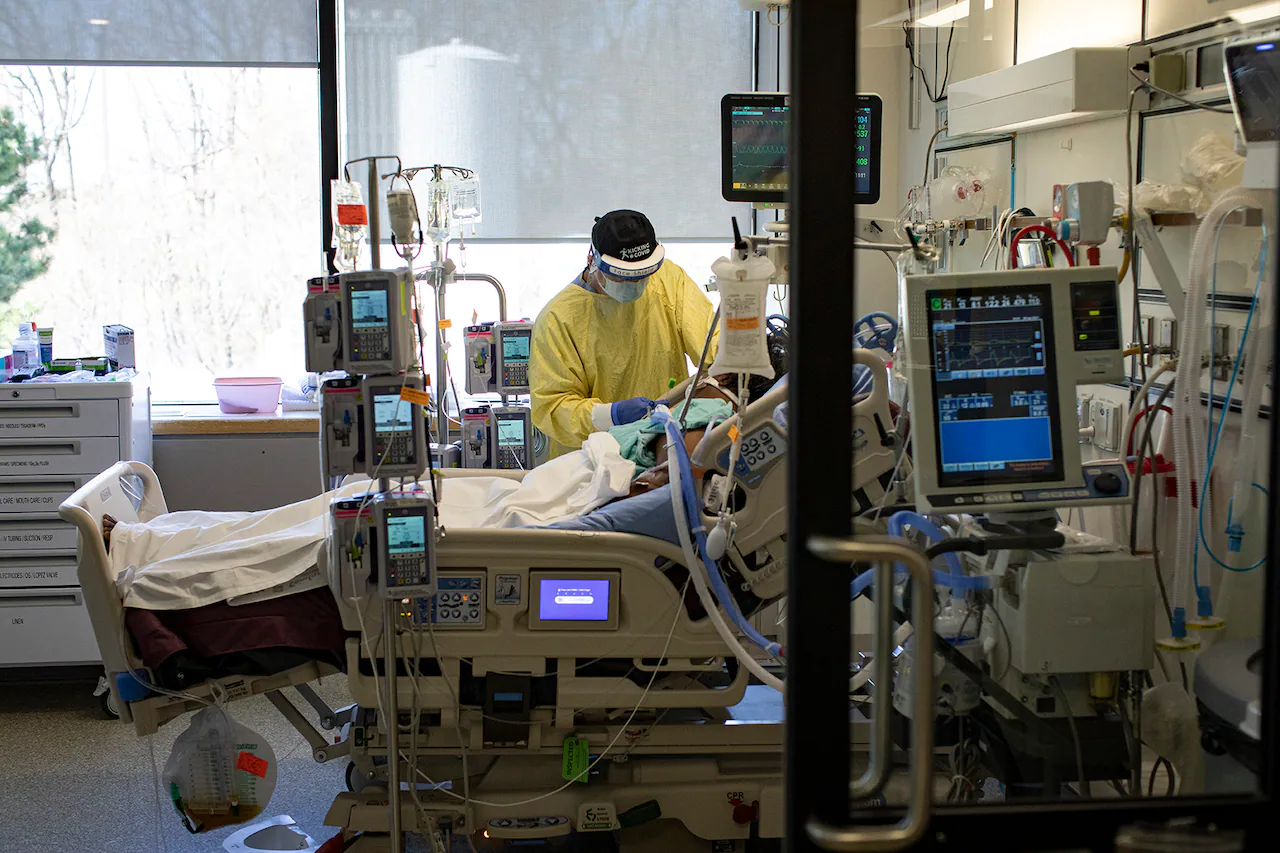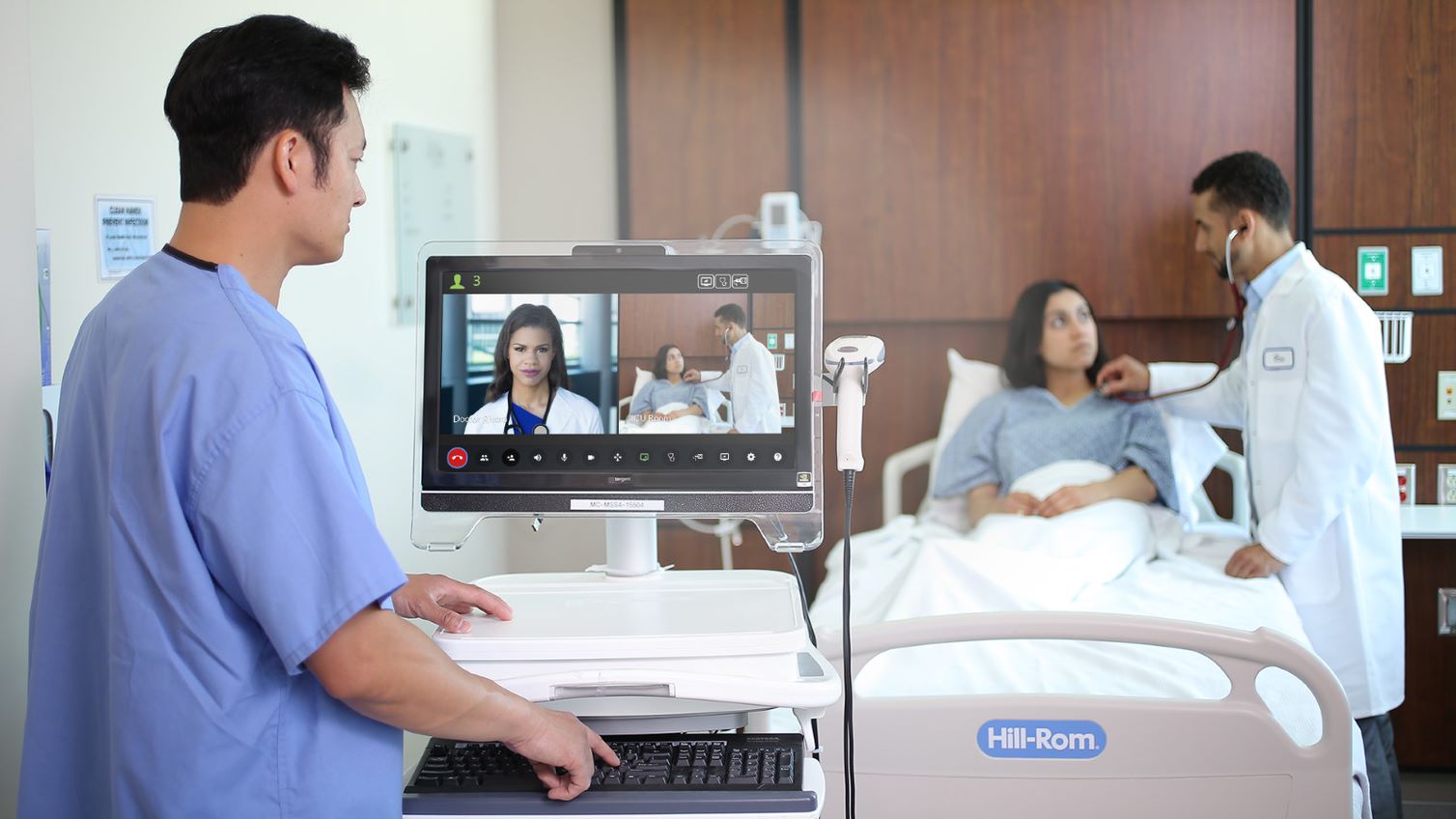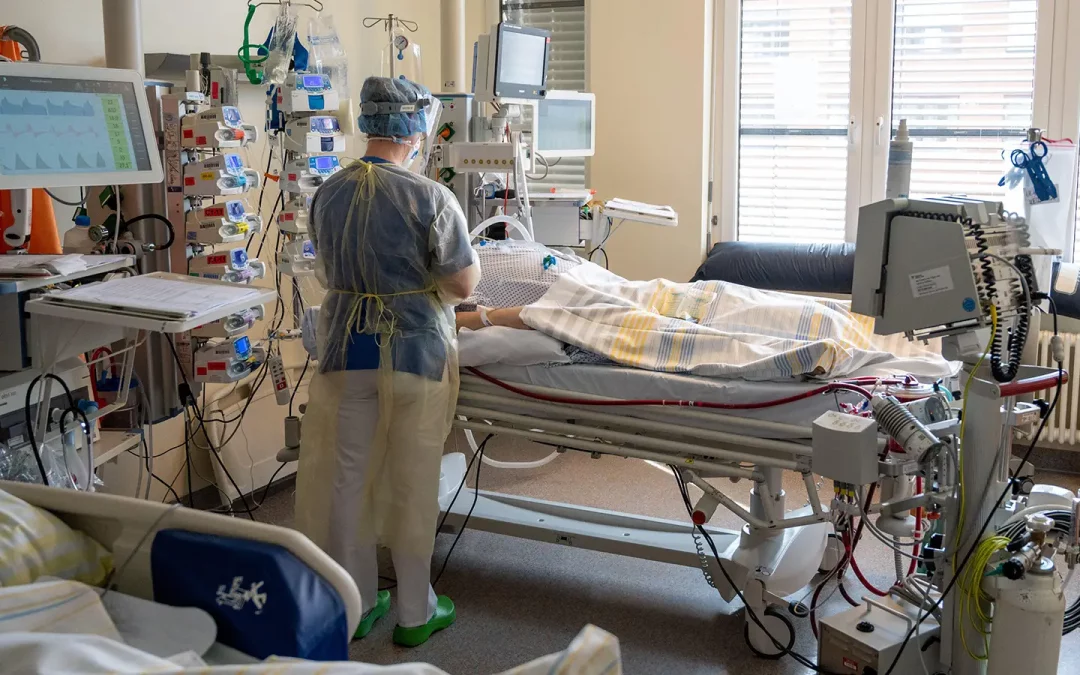When we think of telehealth, we typically think of a provider-patient video encounter. But the term encompasses much more. The hospital medical cart is a great example. When equipped with telehealth-enabled technology, the hospital medical cart is transformed into a flexible healthcare delivery solution providing all the benefits of telemedicine to any bedside throughout the hospital, including the ICU.
Improving care while mitigating staffing challenges
2022 was a difficult year for hospitals across the country as they faced a tridermic of illnesses, including COVID-19, influenza, and respiratory viruses. Census levels peaked at the same time staffing levels were lagging. Scenarios like this are incredibly challenging in departments like the ICU, where high-risk patients can experience dramatic shifts in conditions and care needs at a moment’s notice.
Having medical carts in the ICU at each patient’s bedside enables already overworked critical care clinicians to attend to more patients. Increasingly, hospitals are creating eICUs where clinicians can monitor multiple patients in real time from a centralized location. Carts can be equipped with digital stethoscopes, Horus scopes, and other medical devices to enable detailed remote assessments and observation. This allows for fast response when a patient’s needs change and quick identification of early intervention opportunities.
The telemedicine-enabled hospital medical cart has become a critical component of today’s ICU.
Using hospital medical carts in the ICU is also a great way to enhance the effectiveness of rounding. Bringing the ICU care team, specialists, and the patient’s family together virtually at the patient’s bedside can help improve outcomes and ensure everyone is on the same page with the diagnosis and care plan.

What to look for in an ICU medical cart
Medical carts come in various sizes and configurations so hospitals can choose the right option for their organization’s needs, whether a slim version that tucks away into a closet or storage room or a version equipped with a keyboard, mouse and supplemental battery supply. There are even hand-held versions and carts enabled with remote controls that allow for greater mobility and flexibility—both so important in critical care environments.
Once hospitals have determined their specific needs, they should focus on quality. Medical carts with high-quality audio capabilities automatically adjust for louder and softer voices to ensure everyone is heard, even in areas with lots of activity like a busy ICU. The best solutions will come equipped with high-definition PTZ cameras for more accurate and impactful observation.
When choosing a medical cart solution for the ICU, providers should select a solution that provides robust analytics. It can be challenging to capture the level of analytics needed to ensure regulatory compliance, track performance against best practices, and drive continuous improvement. Analytics allow hospitals to measure encounters and outcomes by location, provider, specialties, and patient populations.
Software-based hospital medical cart solutions for the ICU are a great option because they can be fully encrypted and are HIPAA compliant for both media and signaling. It’s essential, however, that hospitals choose a solution optimized for high fidelity across a variety of networks, devices, and locations, as well as one that seamlessly integrates with the EMR and existing workflows.

Getting started
Telemedicine-enabled medical carts for the ICU can improve care outcomes and the patient experience while enhancing workflows, reducing costs, and mitigating the impact of staffing shortages. The good news is that hospital medical carts don’t require extensive IT investments or in-house staff to maintain them. But not all solutions are equal. Hospitals should look for an integrated solution that supports end-to-end digital healthcare delivery. The VidyoConnect Medical Cart Experience from VidyoHealth is an excellent choice.
The VidyoConnect Medical Cart Experience is a video conferencing solution purpose-built for healthcare practitioners who value an easy-to-use video experience to support remote ICU monitoring, virtual rounds, and multidisciplinary consults.
VidyoConnect Medical Cart Experience Features
- Clinical Program Strategy and Design. Access to our Clinical Program Managers and Adoption Services teams to maximize the return on your investment.
- HIPAA. BAA support, 128-bit encryption, no PHI storage.
- Clinical Peripherals. Built-in support for stethoscopes, otoscopes, and other clinical devices.
- Whiteboard. Collaborate with peers or with patients.
- Far-End Camera Control/PTZ. Ability to control remote cameras from any platform.
- Call Recording. Optional call recording for consult review or patient education training.
- Interoperability. Built-in integrations with top EHRs (Epic, Cerner, Allscripts) and other clinical tools.
- High-Quality Audio/Video. High-quality audio and video replicate the in-person experience.
- Multichannel Design. Consistent experience over all channels—web, mobile, desktop.
- Click-to-Connect. Designed with ease of use in mind—one click to join a conference.
- Self-Service. Self-procurement available for smaller locations and teams.
- Cloud-Delivered Video. Network adaptation technologies for dynamically optimized video are available anywhere, anytime.
Success story
Mercy, the sixth-largest Catholic health system in the U.S., is a prime example of how a bedside medical cart can impact operations and patient care. Mercy integrated VidyoHealth conferencing software into its central TeleICU command center, SafeWatch. Powered by Vidyo and Philips® eCare Manager, SafeWatch provides around-the-clock telemedicine monitoring of critically ill patients at 15 different hospitals. Over 450 Philips TeleICU-monitored beds have been equipped with Vidyo. Mercy’s critical care doctors and nurses can now to observe and visually communicate with ICU patients, their families, and bedside healthcare staff from a central command center.
As a result, Mercy reduced mortality rates by 40%.
Virtual care platforms enable providers to perform around-the-clock monitoring for their most critical patients without adding resources.
The time to act is now. With the VidyoConnect Medical Cart Experience for ICUs, hospitals can improve outcomes for complex cases, reduce lengths of stay and readmissions, improve patient satisfaction, and optimize resources. Learn how VidyoHealth can help your organization.

Recent Comments